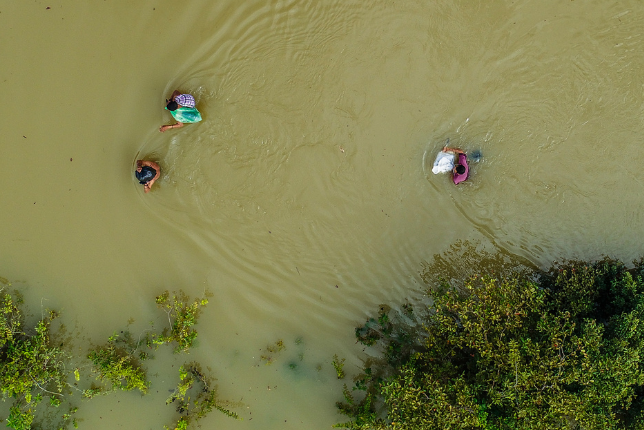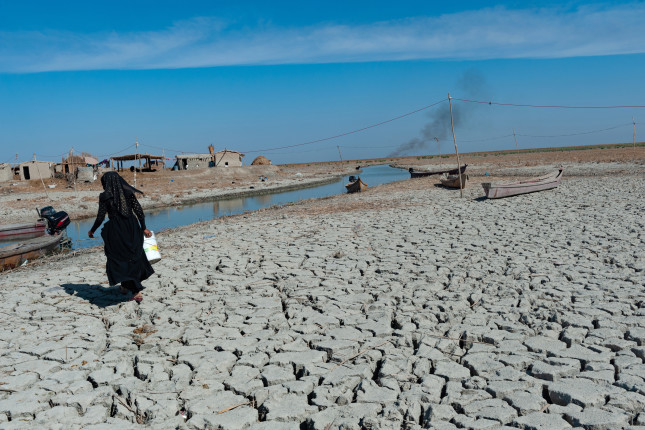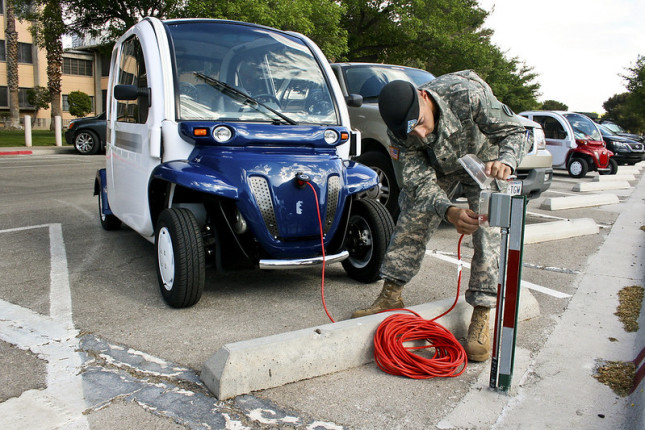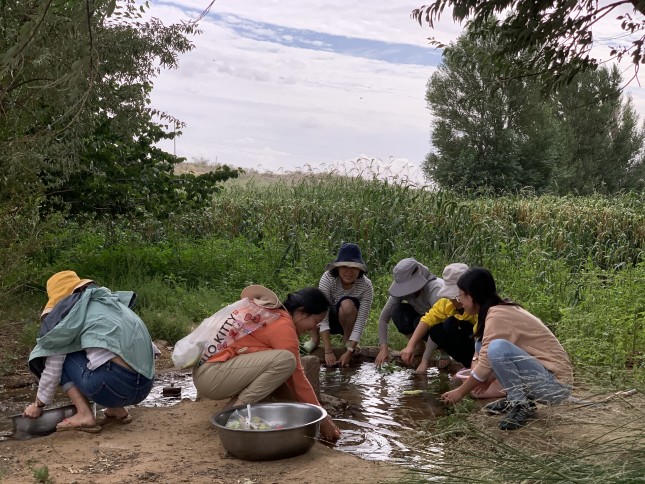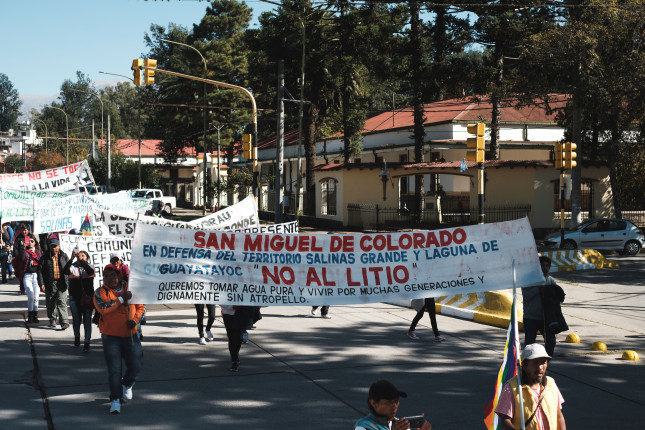-
Can China’s Eco-Authoritarianism Lead Global Climate Action?
›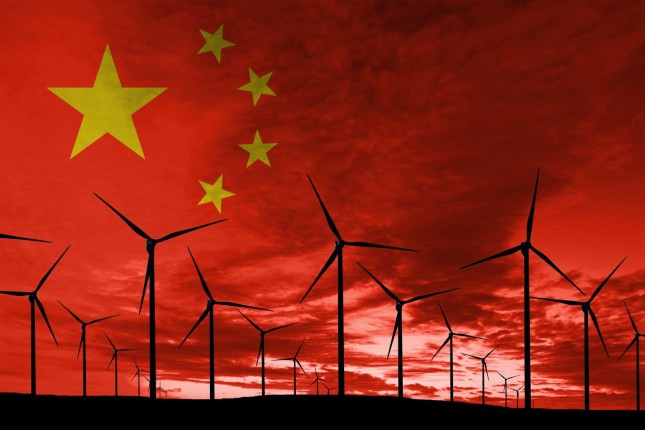
In a time where climate action is urgent, there are debates how China’s “eco-authoritarianism” can move climate and environmental policies faster than in liberal democracies. Although eco-authoritarianism has some benefits, it is no “green bullet” as divisions between China’s central and local governments and a lack of civic participation can slow or derail some climate and pollution policies.
-
Bottom-up Moo-vement: Reducing Methane Emissions from US and Chinese Cows
›When cows eat, they burp. And what they exhale generates almost a third of global methane emissions – a greenhouse gas 80 times more potent in warming the climate than CO2. So tracking this short-lived climate gas is crucial.
Six miles from Bakersfield, California, at the Bear 5 cow feedlot, this work is starting to happen. High-resolution satellites are being used for the first time at the feedlot to track methane emissions from cow burps. Measuring cow belches from space is bringing critical attention to the brewing climate issues from cows. After all, the methane produced by these gassy animals in one year at Bear 5 cow feedlot alone could power more than 15,000 homes in California.
-
Addressing the Converging Risks of Climate, Insecurity, and Migration in Central America
›May 19, 2023 // By Claire Doyle
The idea of climate change as a “threat multiplier” has been gaining steam since it was first proposed roughly 15 years ago. This framing acknowledges that climate can interact with existing political, social, and demographic conditions to heighten communities’ security risks—which in turn suggests that problem-solving in the face of these risks must be interdisciplinary.
-
New Security Broadcast | The Link Between Food Insecurity and Conflict: A New Report from World Food Program USA
› To better understand the complex dynamics of global hunger and the urgent need for more collective action to address this humanitarian crisis, Chase Sova, Senior Director of Public Policy and Research at World Food Program USA, and his colleagues recently launched a new report, “Dangerously Hungry.” In today’s episode of New Security Broadcast, ECSP Program Coordinator and Communications Specialist, Abegail Anderson, speaks with Sova about the report’s analysis on the current state of global hunger and its devastating impacts on vulnerable populations.
To better understand the complex dynamics of global hunger and the urgent need for more collective action to address this humanitarian crisis, Chase Sova, Senior Director of Public Policy and Research at World Food Program USA, and his colleagues recently launched a new report, “Dangerously Hungry.” In today’s episode of New Security Broadcast, ECSP Program Coordinator and Communications Specialist, Abegail Anderson, speaks with Sova about the report’s analysis on the current state of global hunger and its devastating impacts on vulnerable populations. -
How is Climate Change Affecting MENA? Local Experts Weigh In
›From the Wilson Center // April 21, 2023 // By Khalil Abu Allan, Eslam A. Hassanein, Gokce Sencan & Neeshad ShafiFor Earth Day 2023, members of the Agents of Change Youth Fellowship answered this question: What is the biggest environmental or climate change related challenge facing your community today? Their responses reveal a pattern of vulnerability facing the MENA region.
-
Militaries, Metals, and Mining
›
In the early 1960s, Soviet fulfillment officers at the Berezniki and Zaporozh’ye ilmenite mines must have noticed an uptick in worldwide demand for titanium. Orders for titanium sponge were increasing around the globe, and the Soviet Union reacted by increasing production rapidly.
Yet some of these deliveries resulting from this boost in production were not reaching their intended customers. In fact, some of their customers didn’t even exist. Little did the Soviet producers know that it was actually the CIA on the receiving end of these shipments.
-
A Warmer, Wetter Climate Challenges a Chinese Eco-farm
›China Environment Forum // Cool Agriculture // Guest Contributor // April 14, 2023 // By Jiang MengnanIn recent years, a new narrative has appeared on Chinese social media: that a warmer and wetter climate in Northwest China will herald a return to the “golden age” of the Tang dynasty (618–907 AD).
Climate change will bring benefits, so the story goes, as historically China has flourished during warmer and wetter periods – conditions becoming common once more in the Northwest, a region extending from the province of Shaanxi to Xinjiang in the far west.
-
Climate Security and Critical Minerals Mining in Latin America: How Can Business Help?
›Guest Contributor // March 7, 2023 // By Héctor Camilo Morales Muñoz, Johanna Dieffenbacher, Raquel Munayer & Beatrice Mosello
The amount of critical minerals required to develop low-carbon energy technologies is predicted to be six times higher than what is needed today. Yet meeting this demand is necessary to enable a global transition that will address climate change and comply with agreements such as the European Green New Deal.
Showing posts from category climate.



